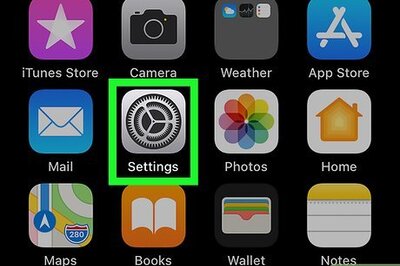
views
One of the most popular weight-loss diets out there, intermittent fasting (IF) is also one of the easiest to follow if you have the determination. There are a number of types of IF that you can adopt, but the key is to fix a routine of time-restricted fasting and eating which you can sustain for a longer time to lose weight effectively and the healthy way. It’s also recommended that you consult a doctor before taking up this diet because IF is not for everyone. The following are some frequently asked questions about IF that you should have the answers to before you try this diet.What can I eat when I’m not fasting?
Most experts and studies on IF do not specify what you should be eating when you’re not fasting, but it’s obvious that you should be eating healthy, nutrient-dense foods during your designated eating hours or day. It’s very important to include fresh fruits and vegetables, whole grains, healthy carbohydrates like brown rice, nuts and seeds and some lean animal proteins like chicken and eggs in your diet. Steering clear of processed food, sugar, refined and complex carbs and junk food of all types is very important.Is intermittent fasting safe for me?
It’s important to remember that despite its many benefits, IF is not for everybody. IF is backed by plenty of medical literature, which is why it’s generally deemed to be safe. However, if you have an underlying condition like an eating disorder, sleep disorder, high blood pressure, anxiety and depression, it’s best to consult your doctor before taking up IF. While some studies indicate IF is good for diabetes patients, it’s important to keep your doctor in the loop if you’re taking up IF.Can I exercise while fasting?
Fasting and high-intensity exercise do not gel well together. Many people who take up IF and exercise can have complications like feeling dizzy, low blood pressure, etc. It’s, therefore, best to start with light exercises while on an IF diet. If the light-intensity exercises suit you, then gradually pick up the intensity as you go and stop as soon as you feel uncomfortable.Will I lose muscle tone by following intermittent fasting?
All types of dietary restrictions which aid weight loss can lead to both muscle and fat loss. Following an IF diet can, therefore, lead to loss of lean mass or muscles. However, some studies suggest that IF leads to more fat loss than muscles loss. If you maintain protein intake and continue to exercise, this muscle loss can be minimised further.This article is the second part of a series on Intermittent Fasting. For more information, read our article on What to eat and what not to eat to lose weight.Health articles on News18 are written by myUpchar.com, India’s first and biggest resource for verified medical information. At myUpchar, researchers and journalists work with doctors to bring you information on all things health.
















Comments
0 comment